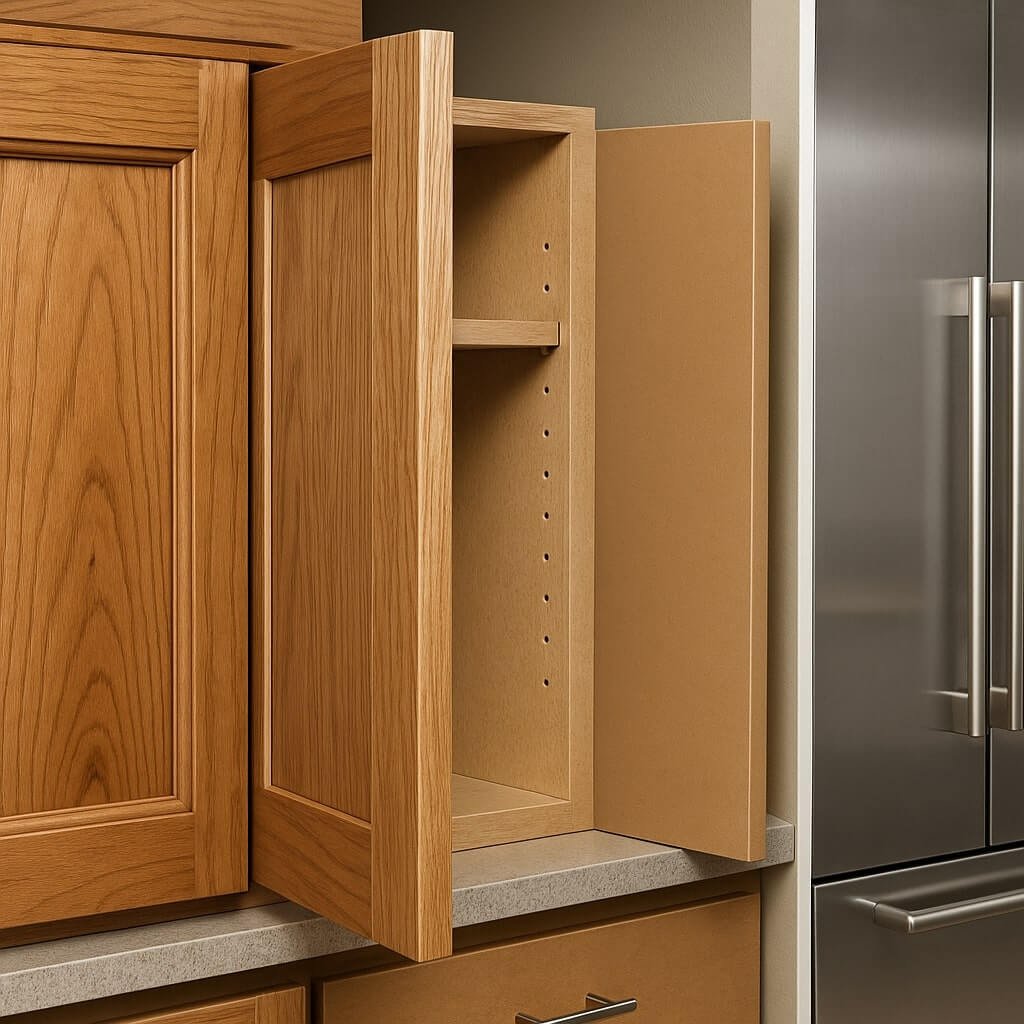Choosing the best materials for kitchen cabinets is crucial for creating a stylish, durable, and functional kitchen. With various options available—from natural woods to engineered alternatives—it can be overwhelming to decide. This guide will break down the most popular kitchen cabinet materials in 2025, along with their pros, cons, and best uses.
1. Solid Wood Cabinets
Solid wood remains a top choice due to its timeless beauty and strength.
Pros:
- High durability and longevity
- Rich natural appearance
- Can be refinished and repaired
Cons:
- Expensive
- Can warp with humidity changes
Best for: Traditional or rustic kitchens that need a premium, natural feel.
2. Plywood Cabinets
Plywood is a high-performance, layered wood product that is popular in mid to high-end kitchens.
Pros:
- Stronger and more stable than MDF
- Lightweight yet durable
- Resistant to moisture
Cons:
- Slightly more expensive than MDF
- Exposed edges need finishing
Best for: Homeowners seeking a balance of strength, affordability, and resistance to humidity.
3. Medium-Density Fiberboard (MDF)
MDF is an engineered wood made from wood fibers and resin. It’s a cost-effective and smooth option for painted cabinet finishes.
Pros:
- A smooth surface is ideal for paint
- Less expensive than plywood or solid wood
- No visible grain
Cons:
- Prone to swelling if not sealed properly
- Less durable than plywood
Best for: Modern or budget-friendly kitchens with painted finishes.
4. Particleboard Cabinets
Particleboard is made from compressed wood chips and resin. It’s a budget-friendly option for low-use areas.
Pros:
- Very affordable
- Lightweight
- Smooth surface for laminates
Cons:
- Least durable option
- Swells easily with moisture
- Susceptible to sagging
Best for: Rental properties or low-traffic kitchen areas.
5. Stainless Steel Cabinets
Stainless steel offers a sleek, industrial look and is often used in professional kitchens.
Pros:
- Extremely durable and easy to clean
- Resistant to fire, water, and pests
- Modern aesthetic
Cons:
- Expensive
- Can show fingerprints and scratches
Best for: Contemporary or industrial-style kitchens.
6. High-Pressure Laminate (HPL)
Laminates are synthetic coatings used on MDF or particleboard cores, available in many colors and textures.
Pros:
- Wide design variety
- Scratch and stain-resistant
- Easy to maintain
Cons:
- Cannot be refinished
- Edges may chip over time
Best for: Modern kitchens needing style and durability on a budget.
7. Thermofoil Cabinets
Thermofoil is a vinyl laminate heated and pressed onto MDF.
Pros:
- Affordable
- Easy to clean
- Moisture-resistant surface
Cons:
- Peels over time with heat exposure
- Hard to repair
Best for: Budget-conscious homeowners who want sleek, low-maintenance cabinets.
Comparative Table: Best Kitchen Cabinet Materials
| Material | Durability | Water Resistance | Cost | Best Feature |
|---|---|---|---|---|
| Solid Wood | Excellent | Moderate | High | Natural, classic appearance |
| Plywood | High | High | Medium-High | Strength + water resistance |
| MDF | Moderate | Low | Medium | Perfect for painted surfaces |
| Particleboard | Low | Low | Low | Very budget-friendly |
| Stainless Steel | Excellent | Excellent | Very High | Industrial, hygienic finish |
| HPL Laminate | Good | Moderate | Medium | Stylish and durable |
| Thermofoil | Fair | Moderate | Low | Easy to clean and maintain |
FAQs About Kitchen Cabinet Materials
1. What is the most durable material for kitchen cabinets?
2. Which material is best for a budget kitchen remodel?
3. Are plywood cabinets better than MDF?
4. What cabinet material resists water best?
5. Can I paint over MDF or laminate cabinets?
Conclusion
Selecting the best materials for your kitchen cabinets depends on your priorities—whether that’s budget, durability, aesthetics, or ease of maintenance. For most homeowners in 2025, plywood offers the best all-around performance, while MDF is ideal for painted cabinets on a budget. For a luxury kitchen, solid wood or stainless steel may be worth the investment.

